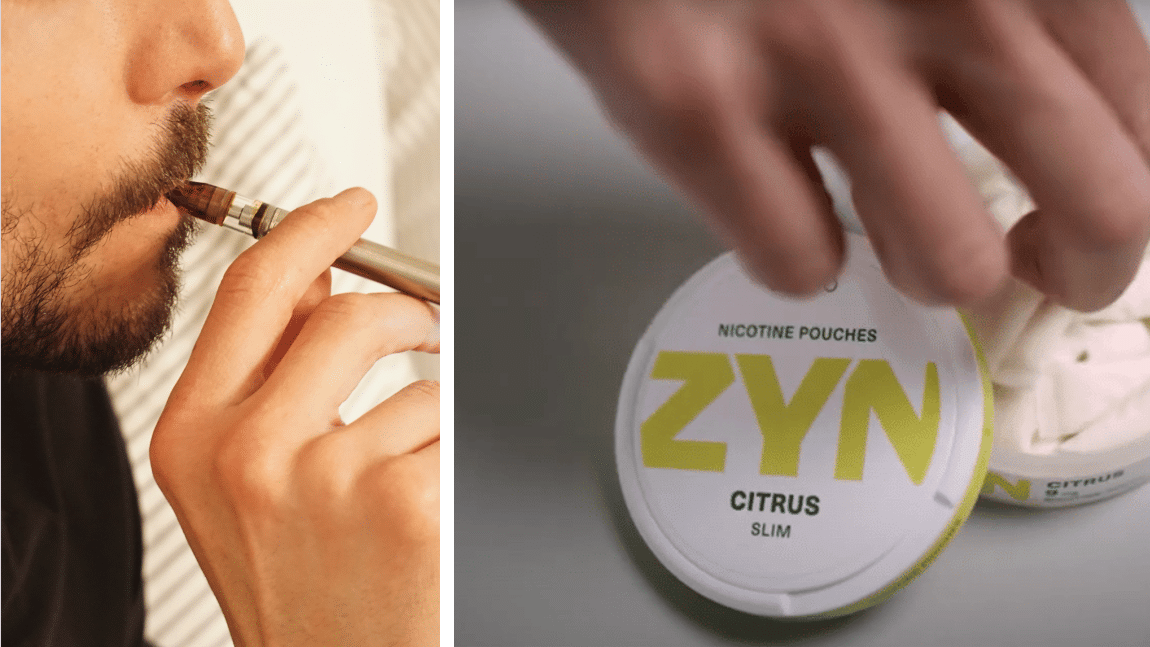
Beyond partisanship: How the US could learn from Sweden’s nicotine pouch approach
Nicotine pouches have ignited a media firestorm in the US. While these pouches have been a mainstay in Sweden since the 2010s, their recent surge in popularity across the Atlantic has sparked concerns over public health, marketing tactics, and potential gateway effects.
The rise of nicotine pouches, particularly the brand Zyn, has been meteoric. A March 2024 Time Magazine details the rise of so-called social media “zynfluencers” who post frequently about the product, alarming politicians and frustrating manufacturer Philip Morris International.
This popularity has also triggered other concerns. A CBS News report suggests a lack of long-term health data on the pouches could raise questions about pouches’ safety compared to traditional cigarettes. The report also suggests that nicotine pouches have been deliberately marketed to young people. This fevered atmosphere has even infected the U.S. Food and Drug Administration (FDA). While the FDA has recognized Swedish snus as a healthier alternative to cigarettes for several years, in April it loudly trumpeted filing civil money penalty complaints against retailers engaged in underage sale of nicotine pouches.
Politicisation and Partisanship: A Divided Debate
The debate surrounding nicotine pouches has even transcended public health concerns and become a political football. A recent Vox article details how the issue has become entangled in the US culture wars, with figures such as Democratic Senator Chuck Schumer pushing for stricter regulations and Fox News host Tucker Carlson defending them as a harm reduction tool.
Vox’s article went on to suggest that nicotine pouches are becoming a unifying force for right-wing young men supportive of Donald Trump, in a phenomenon known as “mascuzynity,” a portmanteau word combining “masculinity” and “Zyn”.
This politicisation has further complicated efforts to establish clear guidelines and regulations for the sale and marketing of nicotine pouches.
Highlighting the Harm Reduction Debate
But there are signs that some in the US can cut through the partisan politics and acknowledge the value of nicotine pouches. Tory Spindle, an associate professor in the Department of Psychiatry and Behavioral Sciences at the John Hopkins School of Medicine, told the university’s news website, Hub:
“It’s undeniable that (nicotine pouches) have less conventional carcinogens compared to oral tobacco products, like chewing tobacco.”
Furthermore, Business Insider has reported on the growing popularity of nicotine pouches among blue-collar workers as a discreet alternative to cigarettes during work hours. This highlights the potential for pouches to cater to a specific demographic seeking a harm reduction strategy.
The Atlantic also positions itself as open-minded about pouches. It believes there is a legitimate debate to be had concerning the merits of nicotine pouches. Unlike cigarettes, pouches lack tobacco and are not smoked, the fundamental reasons why cigarettes are so deadly.
The tobacco industry positions these products as a potential tool for adult smokers to wean themselves off cigarettes. The logic is compelling: with cigarettes claiming the lives of more than 480,000 Americans annually – a figure exceeding combined fatalities from COVID-19 and car crashes in 2021 – a shift towards pouches could represent a significant public health benefit.
Beyond Hype: The Swedish Experience
It’s nuance that will provide the best path forward, as has been proved by Sweden’s public health success regarding tobacco use. Since nicotine pouches were introduced to the Swedish market in 2016, smoking rates have plunged from 12% to below 6%.
This dramatic drop positions Sweden as the frontrunner to become the first European Union country to achieve smoke-free status. Sweden has also opted not to ban flavored nicotine pouches, citing their appeal as a key factor in encouraging smokers to switch from cigarettes.
“The US could learn from Sweden’s success. By prioritizing public health outcomes and harm reduction and by regulating with a light touch, the US can navigate this complex issue and make informed, humane decisions about the future of nicotine pouches”, says Patrik Strömer, Secretary-General of the Association of Swedish Snus Manufacturers.




